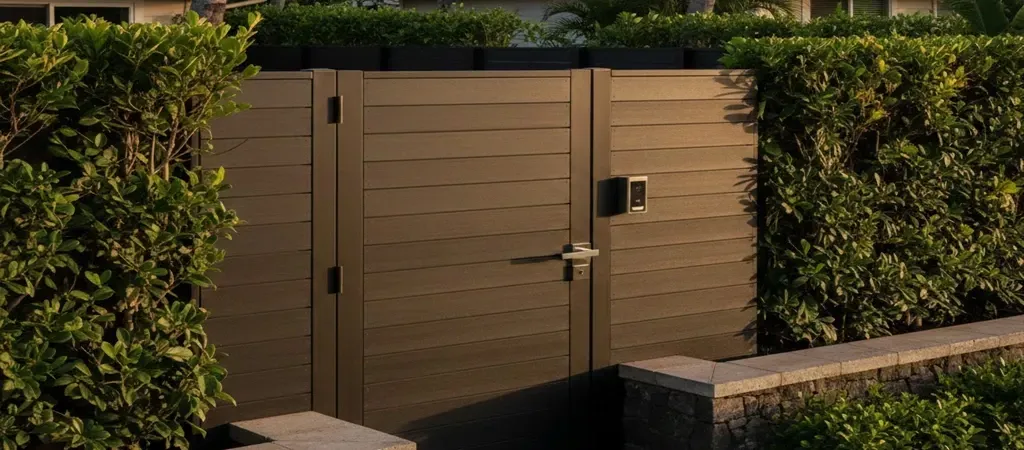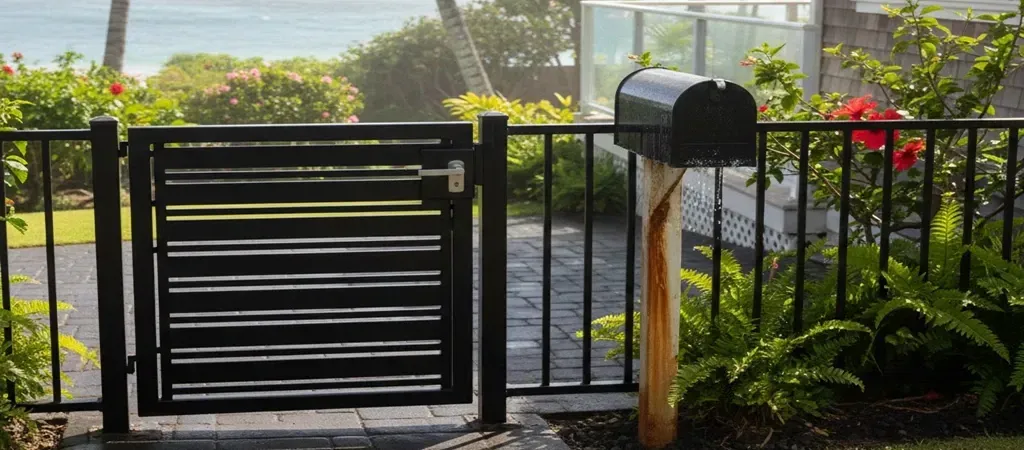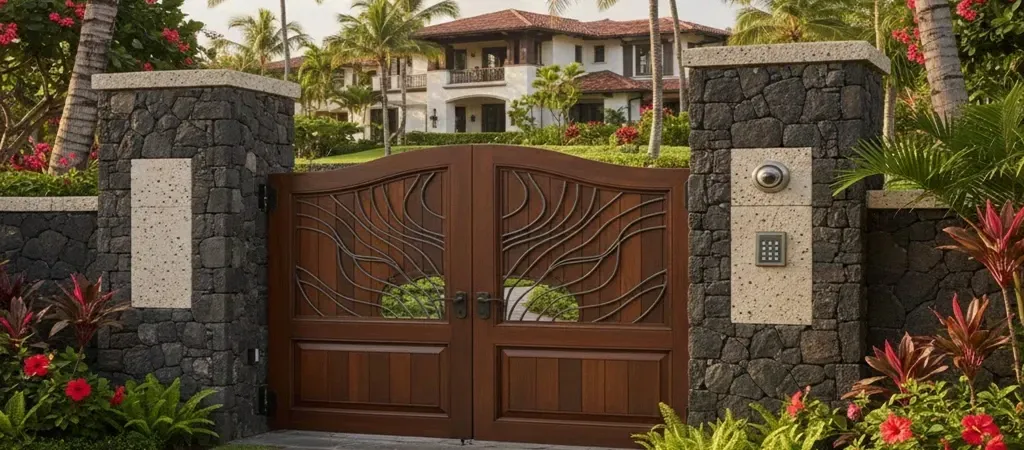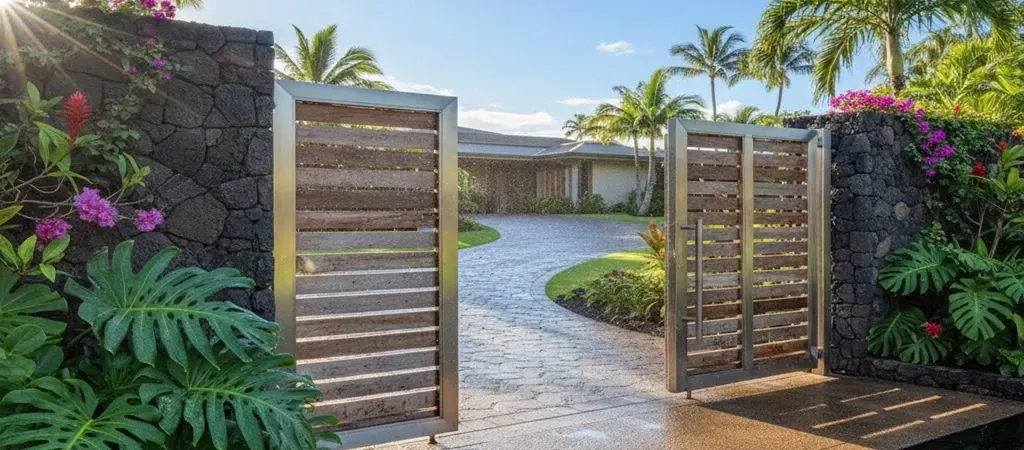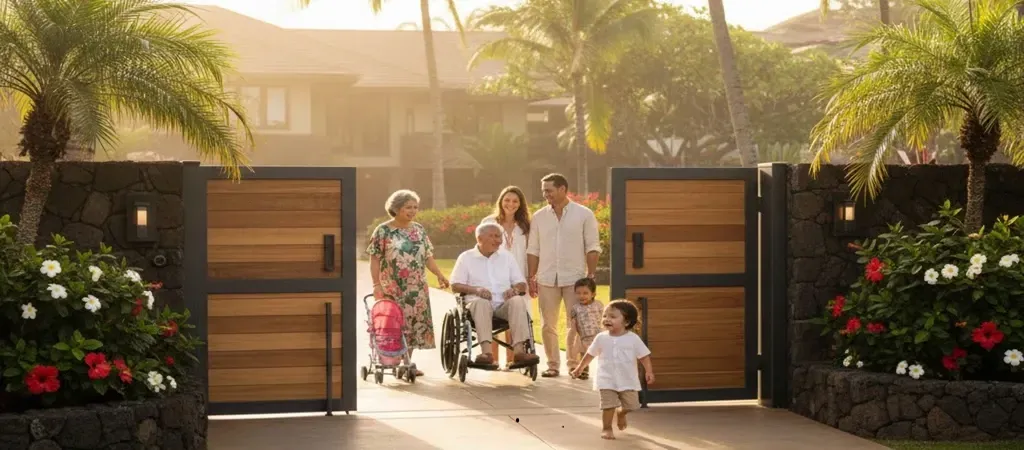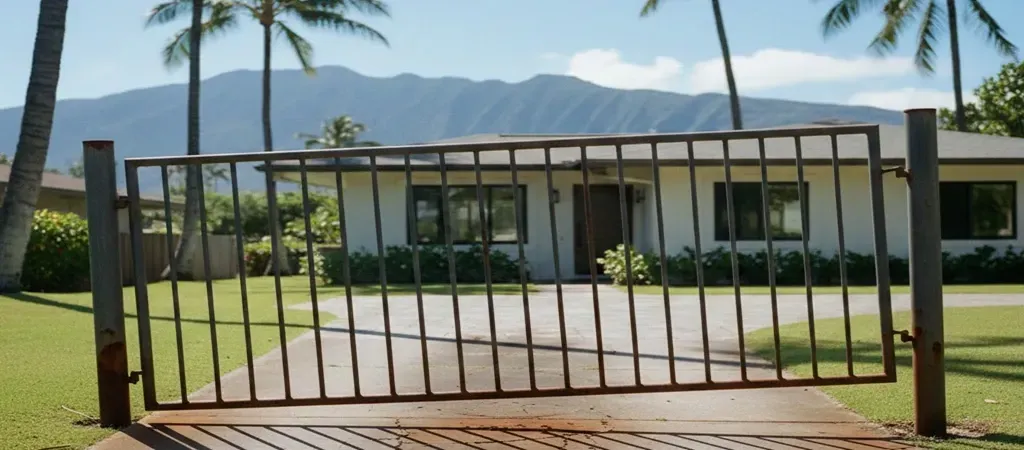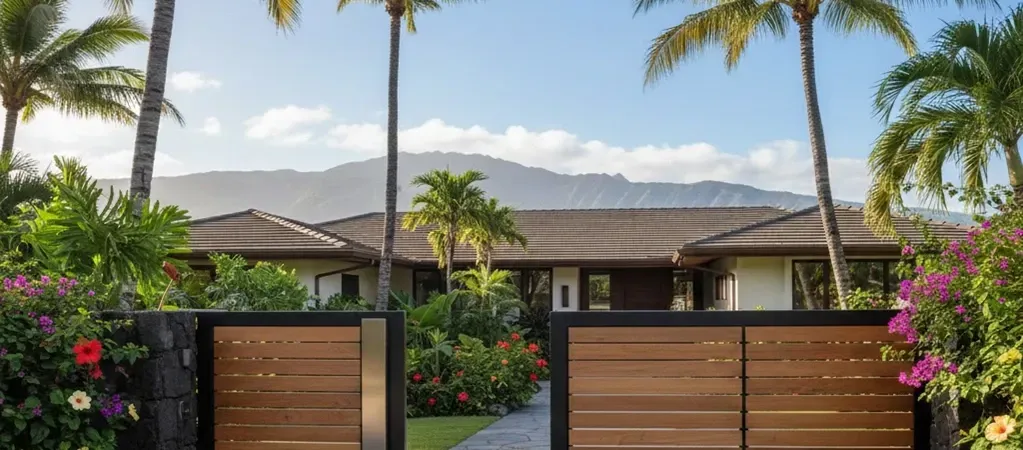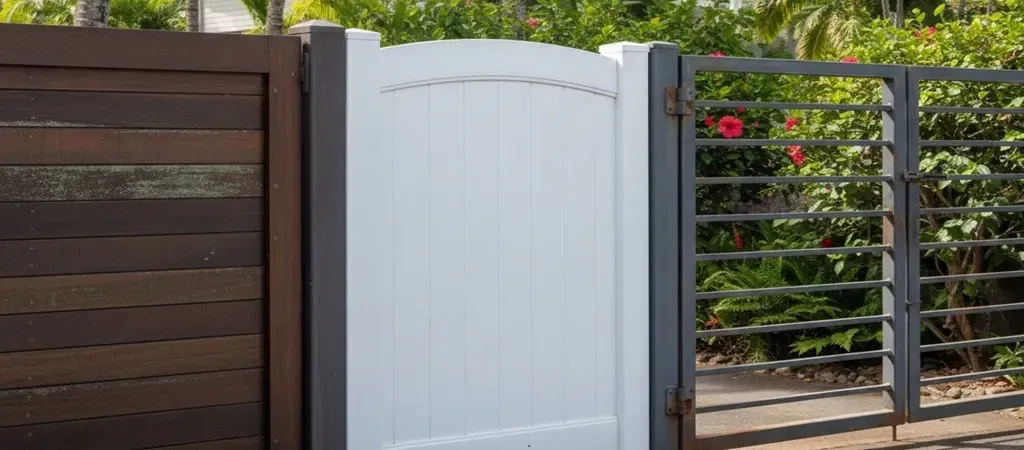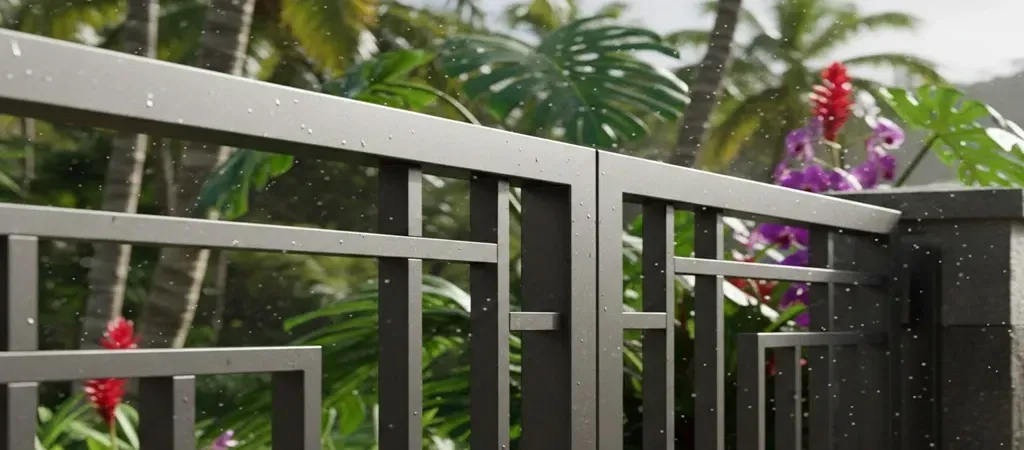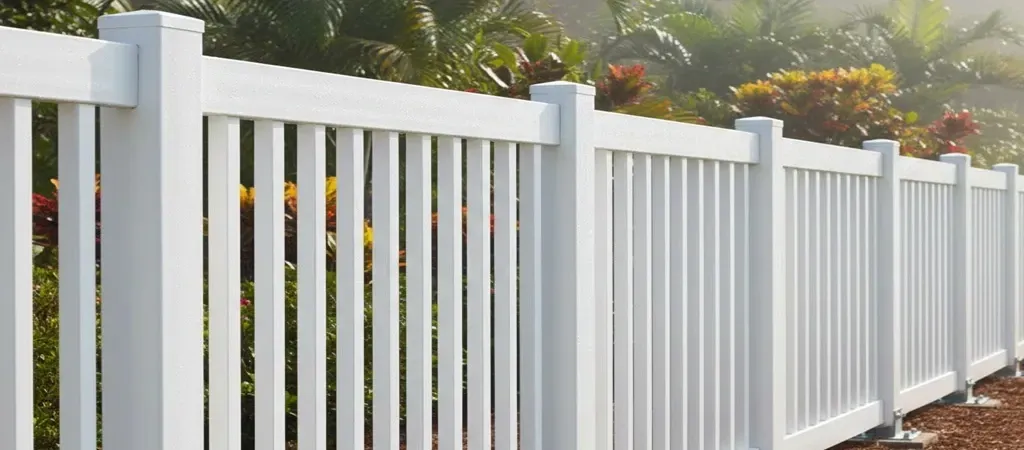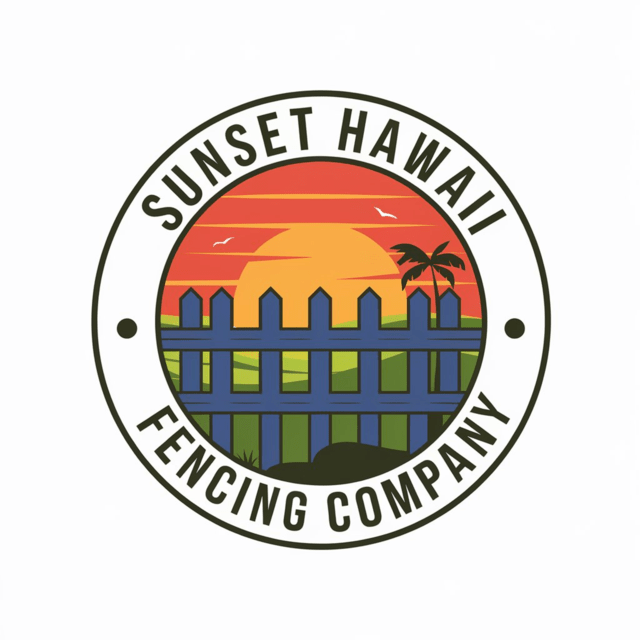Best Materials for Fencing in Hawaii: What You Need to Know
Fencing is definitely a boundary. But it’s also about privacy, security, and blending with Hawaii’s lush landscapes. But not every fence material fits Hawaii’s unique weather and terrain. So, what’s the best material for your Hawaiian fence? Here's the tips for preparing the perfect one for you.
Why Your Fence Material Choice Can Make or Break It
Hawaii's environment is diverse. Sunny beaches and rainy mountains. The climate varies a lot. Salt from the ocean breeze, strong winds, and frequent rain in some areas. These factors can quickly wear down your fence if you don’t choose the right material. Here’s why it matters:
- Salt exposure from ocean air can lead to rust and corrosion. Especially on metal fences.
- Strong winds might damage or topple weak or poorly anchored fences.
- Humidity and rain can rot wood. They cause
mold if the material isn't properly treated.
Choosing the right material helps you avoid frequent repairs. It ensures your fence looks great for years. Below are some materials explained with their pros and cons:
Vinyl Fencing (Durable and Low Maintenance)
Why it works: Vinyl fencing is a popular choice in Hawaii. It’s resistant to salt air. Vinyl fence doesn’t rust or rot. They are made from PVC, a type of plastic. It’s lightweight but strong. This makes it easy to install and durable in tough weather. Vinyl fences are easy to clean. They are super low-maintenance and last.
Pros:
- Doesn’t need painting or staining.
- Withstands humid and salty environments.
- Easy to clean with just soap and water.
Cons:
- Can be more expensive upfront than wood or chain-link.
- Limited in color choices and may fade over time.
Best Use: Vinyl works well if your home is near the beach where salt exposure is high. It gives a clean and modern look. Plus, it is hassle-free.
Chain-Link Fencing (Affordable and Sturdy)
Why it works: Chain-link fencing is practical and budget-friendly. It’s made from galvanized or coated steel. That means it is resistant to rust. This is a solid choice for large properties or areas where you need a boundary without blocking the view.
Pros:
- Cost-effective for large areas.
- Allows visibility, which can be great for gardens or play areas.
- Low maintenance and lasts long.
Cons:
- Offers little privacy unless you add slats or greenery.
- Not the most aesthetically pleasing choice.
Best Use: Chain-link is perfect for securing large areas. For example, backyards, farms, or commercial properties. It’s also good if you want to keep pets or children safe. Best for not obstructing the view.
Wood Fencing (Classic but High Maintenance)
Why it works: Wood offers a warm, natural look. It blends well with Hawaii’s landscapes. Wood can be customized with paint or stain. So you get flexibility in style. However, Hawaii’s moisture can be a challenge for wood. It can lead to rot and insect damage if not properly treated.
Pros:
- Beautiful, traditional appearance.
- Highly customizable in style and color.
- Adds value to the property with its classic look.
Cons:
- Needs regular staining or painting to prevent rot and insects.
- Prone to warping and splitting in humid conditions.
Best Use: Ideal for residential areas where aesthetics are important. Great choice if you’re willing to invest in regular maintenance.
Aluminum Fencing (Sleek and Rust-Resistant)
Why it works: Aluminum fences are perfect for Hawaii’s salty air. They are lightweight and rust-proof. You don’t have to worry about rust ruining your fence. Aluminum also looks like wrought iron. So you get a stylish look without the heavy weight. It’s perfect for areas near the beach. The material holds up well in humid and windy conditions. They provide a stylish and modern look. Perfect for enhancing curb appeal.
Pros:
- Doesn’t rust, even in salty air.
- Lightweight and easy to install.
- Low maintenance and long-lasting.
Cons:
- Can be more costly than chain-link or basic wood options.
- Not ideal for privacy unless combined with decorative elements.
Best Use: Perfect for decorative purposes and pool areas. Use aluminum fencing for coastal homes where you need a rust-resistant solution.
Composite Fencing (The Eco-Friendly Option)
Why it works: Composite fences are made from a mix of wood fibers and plastic. They are designed to look like woo. But without the high maintenance. They are resistant to rot and insects. Plus, they are resistant to UV rays. That makes it a durable option for Hawaii’s diverse climate.
Pros:
- Low maintenance and long-lasting.
- Eco-friendly made from recycled materials.
- Resists fading, staining, and mold.
Cons:
- Higher upfront cost compared to traditional wood.
- Limited color choices.
Best Use: Ideal for environmentally conscious homeowners. Perfect if you want a wood-like appearance without the upkeep.
Bamboo Fencing (Sustainable and Stylish)
Why it works: Bamboo is fast-growing because it is sustainable. It has a tropical look. That means it’s a great fit for Hawaii. It’s durable and naturally resistant to pests and moisture. But it requires proper upkeep.
Pros:
- Eco-friendly and sustainable.
- Attractive, natural appearance.
- Lightweight and easy to install.
Cons:
- Needs treatment to withstand Hawaii’s moisture.
- Can discolor and weaken over time if not maintained.
Best Use: Perfect for homeowners looking for an environmentally friendly option. Great if you want something that blends with Hawaii’s tropical vibe.
Important Considerations Before Installing a Fence in Hawaii
Before deciding on a material, think about:
- Local regulations: Some areas have specific rules about fence height and material. Because there are cultural or environmental reasons.
- Purpose: What is most important to you? Privacy? Security? Budget? Or aesthetics?
- Maintenance: Do you have the time and budget for upkeep?
Here’s a simple guide to help you see what kind of upkeep each material might need:
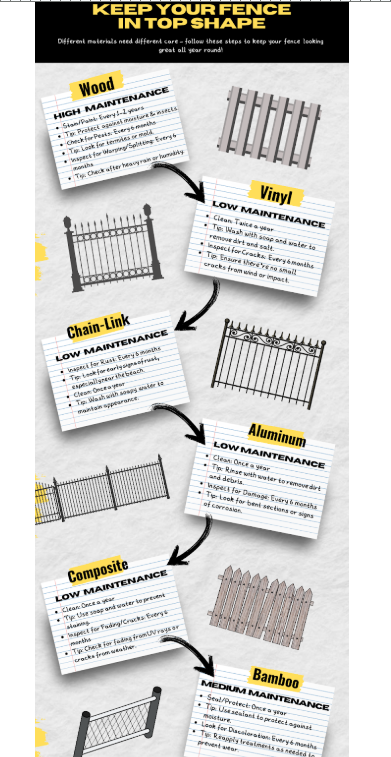
Bring Your Hawaiian Dream Fence to Life with Us!
Tired of looking at a plain yard? Let’s transform it with a fence that’s built to last! At Sunset Hawaii Fencing, we help you choose the best fencing materials.
Get them tailored for Hawaii's unique climate. Want the low-maintenance appeal of viny? The classic charm of wood? Or the sleek durability of aluminum? We can help. Contact us today for a free consultation!
